
Partnering with Faculty
The SU Libraries work closely with many academic faculty to teach students information literacy skills – that is, how to find, evaluate and use information. We teach sessions in most of the freshman English writing classes and their Honors equivalents, but we also teach more advanced skills when faculty invite us into their other classes. To recognize the faculty who give up their own class time to partner with us and strengthen their students’ skills, we began in 2014 to recognize Information Literacy Partners of the Month, usually three or four per year. Here is some information about our IL Partners from fall 2017 to the present, as written by the librarians who nominated them:
Sherry Maykrantz, Health Sciences
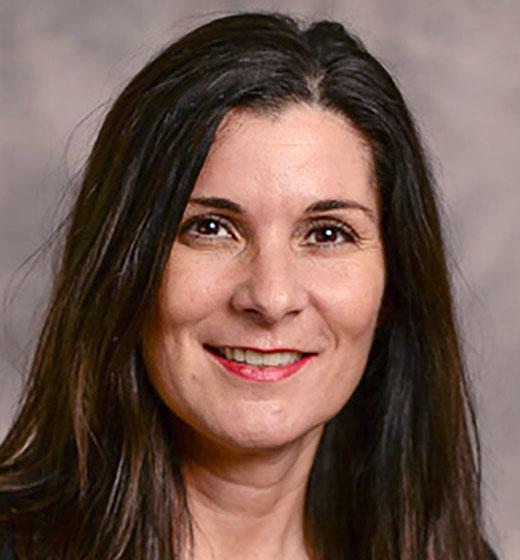 While Dr. Maykrantz has been an adjunct at SU for several years, this is her first semester as a full-time professor, and she has hit the ground running at full steam! For her HLTH classes this semester (Health Behavior and Drug Education), we worked together in tailoring the library instruction sessions to focus on the needed skills to be successful on the given assignments, as well as beyond the classroom. Students practiced their skills in identifying and evaluating empirical research in the community health field, then worked hard to find the same kind of research related to their various topics using library resources. As these are entry-level courses in the community health major, a number of students had never conducted this kind of research previously, and during these sessions, many of the students had those “lightbulb moments,” where they grasped more fully how to identify and incorporate high-quality research into their projects.
While Dr. Maykrantz has been an adjunct at SU for several years, this is her first semester as a full-time professor, and she has hit the ground running at full steam! For her HLTH classes this semester (Health Behavior and Drug Education), we worked together in tailoring the library instruction sessions to focus on the needed skills to be successful on the given assignments, as well as beyond the classroom. Students practiced their skills in identifying and evaluating empirical research in the community health field, then worked hard to find the same kind of research related to their various topics using library resources. As these are entry-level courses in the community health major, a number of students had never conducted this kind of research previously, and during these sessions, many of the students had those “lightbulb moments,” where they grasped more fully how to identify and incorporate high-quality research into their projects.
Emin Lelić, History
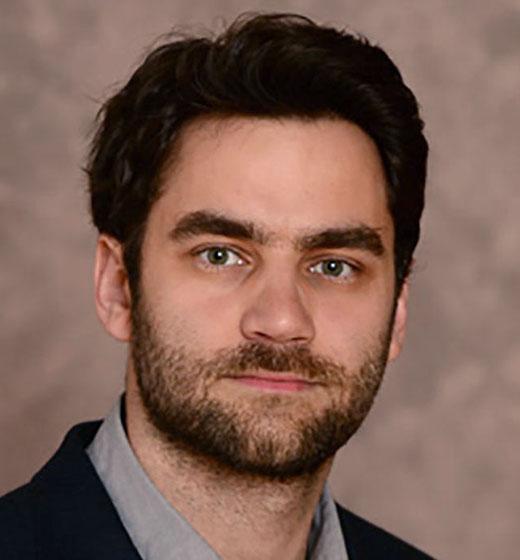 Dr. Lelić has been enthusiastic about having his two sections of HIST 102 incorporate both the use of Nabb Center Special Collections and research instruction sessions into a semester-long documentary project. His students visited the Nabb Center early in the semester to learn about primary sources and, for most of the students, it was their first time engaging with historic documents. The students formed small groups and chose the collections they connected most with to be the focus of their 8-10 minute documentary. Three weeks later and after proposing the broader history they’d explore in the documentary, we met in one of the computer labs to learn how to discover the library’s sources and cite them in Proquest RefWorks before their annotated bibliographies were due. At the end of the semester, the students showcased their documentaries in the Nabb Center classroom.
Dr. Lelić has been enthusiastic about having his two sections of HIST 102 incorporate both the use of Nabb Center Special Collections and research instruction sessions into a semester-long documentary project. His students visited the Nabb Center early in the semester to learn about primary sources and, for most of the students, it was their first time engaging with historic documents. The students formed small groups and chose the collections they connected most with to be the focus of their 8-10 minute documentary. Three weeks later and after proposing the broader history they’d explore in the documentary, we met in one of the computer labs to learn how to discover the library’s sources and cite them in Proquest RefWorks before their annotated bibliographies were due. At the end of the semester, the students showcased their documentaries in the Nabb Center classroom.
Kayla Follmer, Management and Marketing
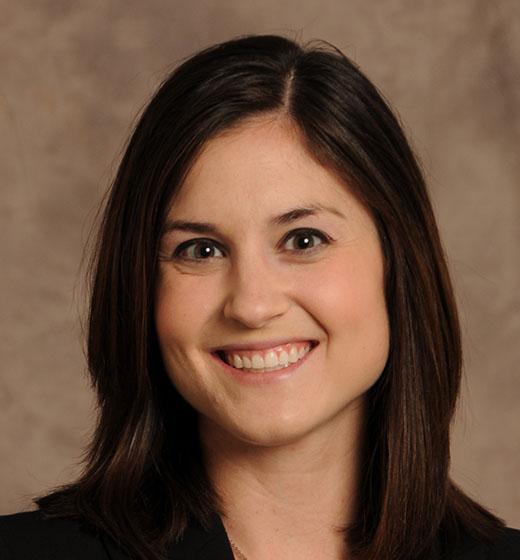 While Dr. Follmer is a new faculty member this year, she was eager to learn about the SU Libraries’ resources and services from the onset, especially in terms of student support. After the fall semester, she quickly identified how library research instruction could benefit her management students, and collaborated with Melissa Bugdal, director of the University Writing Center, and myself to organize a joint information literacy and writing skills workshop. I was impressed not only with her initiative but the value she placed on harnessing and improving these skills within a professional degree program. Attendance was beyond what we expected for a Friday afternoon, and student feedback showed it was quite successful.
While Dr. Follmer is a new faculty member this year, she was eager to learn about the SU Libraries’ resources and services from the onset, especially in terms of student support. After the fall semester, she quickly identified how library research instruction could benefit her management students, and collaborated with Melissa Bugdal, director of the University Writing Center, and myself to organize a joint information literacy and writing skills workshop. I was impressed not only with her initiative but the value she placed on harnessing and improving these skills within a professional degree program. Attendance was beyond what we expected for a Friday afternoon, and student feedback showed it was quite successful.
Isabel Quintana Wulf, English
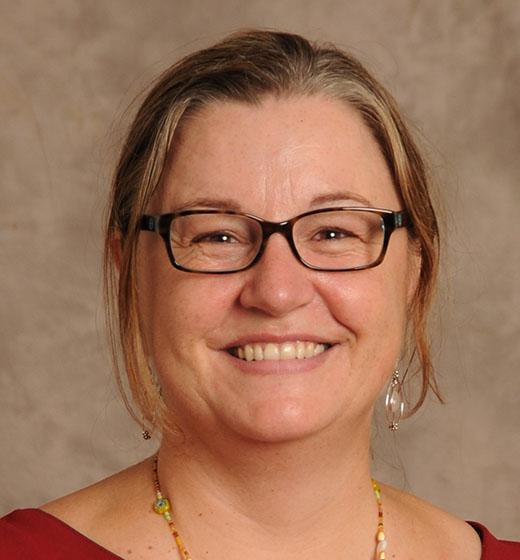 I’d like to nominate the English Department’s Dr. Isabel Quintana Wulf for working with me to develop ways to help students find sources that support their analyses of literature in her ENGL 257 Multiculturalism and Its Discontents and ENGL 300 Border Crossings courses. Although these are two unfamiliar literature areas for me, Dr. Quintana Wulf has continued to offer insight and suggestions that have really helped me to develop library instruction content that strives to assist students in these classes.
I’d like to nominate the English Department’s Dr. Isabel Quintana Wulf for working with me to develop ways to help students find sources that support their analyses of literature in her ENGL 257 Multiculturalism and Its Discontents and ENGL 300 Border Crossings courses. Although these are two unfamiliar literature areas for me, Dr. Quintana Wulf has continued to offer insight and suggestions that have really helped me to develop library instruction content that strives to assist students in these classes.
Maida Finch, Literacy Studies
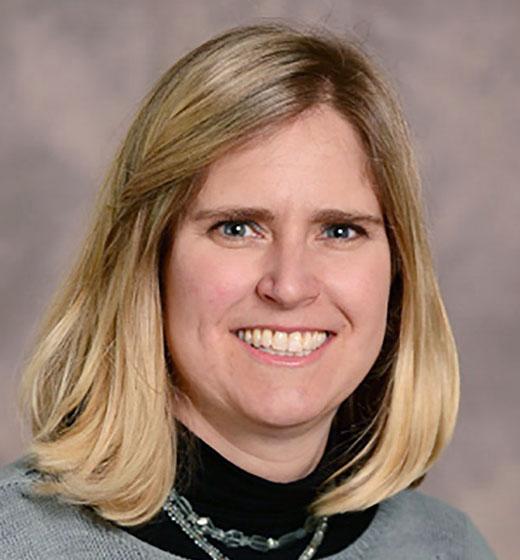 Dr. Maida Finch teaches the EDUC 695 Research Seminar this semester and requested that I be embedded within her MyClasses [SU’s course management system] course in the usual ways. We closely collaborated on the supporting LibGuide [an online guide to research] for the course, with much back and forth about the content, resulting in significant changes that she said she loved. The above and beyond was that she next asked me to work with her to create an APA formatting quiz within MyClasses. She gave me the scope, then free rein to construct the quiz. The 13-question quiz contains specific questions on manuscript formatting details and in-text and reference citation style questions. I used a variety of question types to keep it interesting, which she loved.
Dr. Maida Finch teaches the EDUC 695 Research Seminar this semester and requested that I be embedded within her MyClasses [SU’s course management system] course in the usual ways. We closely collaborated on the supporting LibGuide [an online guide to research] for the course, with much back and forth about the content, resulting in significant changes that she said she loved. The above and beyond was that she next asked me to work with her to create an APA formatting quiz within MyClasses. She gave me the scope, then free rein to construct the quiz. The 13-question quiz contains specific questions on manuscript formatting details and in-text and reference citation style questions. I used a variety of question types to keep it interesting, which she loved.
We are grateful to all the faculty who partner with us!